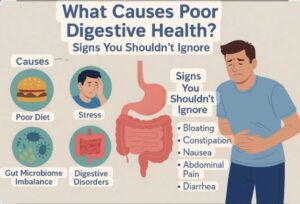Sleeping early during intermittent fasting (IF) enhances its benefits and prevents negative side effects. Here’s why:
1. Supports Metabolism & Fat Burning
The body’s natural circadian rhythm aligns with metabolism. Sleeping early ensures that fat-burning and repair processes peak during the fasting window.
Late-night wakefulness can increase cortisol (stress hormone) and disrupt insulin sensitivity, slowing weight loss.
2. Reduces Late-Night Cravings
Staying awake late can trigger hunger, leading to overeating or breaking the fast early.
Sleeping early helps maintain discipline and prevents unnecessary snacking.
3. Enhances Digestion & Detoxification
The body’s digestive fire (Agni) is weaker at night, making late meals harder to digest.
Sleeping early ensures proper gut rest, repair, and detoxification during fasting hours.
4. Balances Hormones (Melatonin, Ghrelin & Leptin)
Melatonin (sleep hormone) supports deep sleep and fasting benefits. Late nights can reduce melatonin, leading to poor sleep and increased hunger.
Ghrelin (hunger hormone) and leptin (satiety hormone) work better with early sleep, keeping hunger under control.
5. Improves Energy & Mental Clarity
Poor sleep increases fatigue, brain fog, and irritability, reducing the effectiveness of fasting.
Sleeping early ensures better recovery, energy levels, and mental focus the next day.
Ideal Sleeping Window in IF:
✅ Best: 9:30 – 10:30 PM for optimal fasting benefits.
✅ Worst: After 12 AM (disrupts metabolism and increases cravings).






